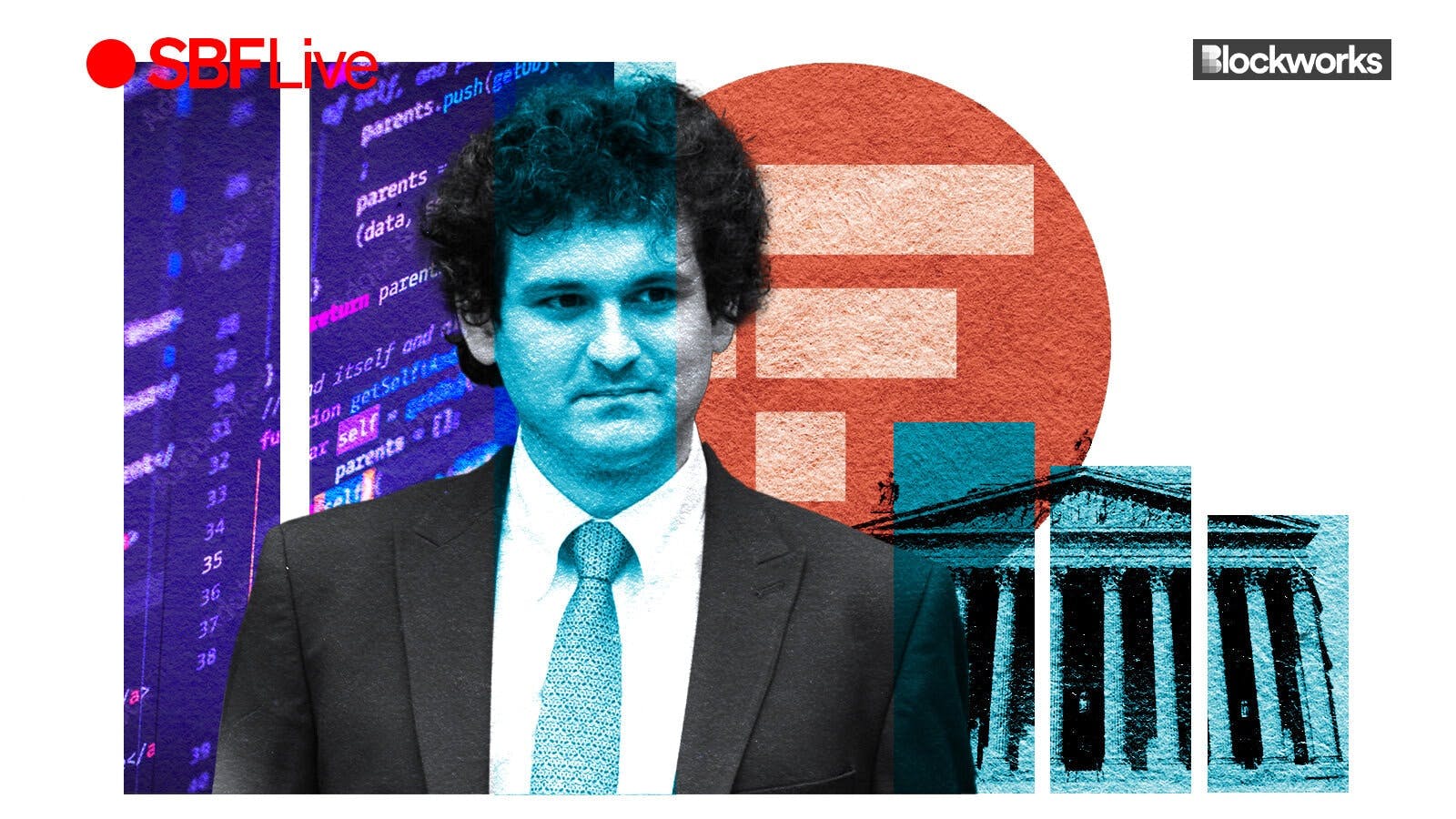SBF sentenced to 25 years in prison
The former FTX CEO was sentenced in a New York courtroom on Thursday

Artwork by Crystal Le
FTX founder Sam Bankman-Fried was sentenced to 25 years in prison for seven counts of fraud and conspiracy by a federal judge on Thursday in Manhattan.
The ruling falls between the prosecution’s proposed 40-50 year sentence and the defense’s recommendation of six and a half years. Bankman-Fried’s convictions carry a maximum sentence of 110 years.
The maximum sentence and the prosecutor’s recommendation were “substantially greater than necessary,” Presiding judge Lewis Kaplan said. He stressed that this is in no way to say that the crimes were not serious.
Bankman-Fried’s “exceptional flexibility with the truth,” “apparent lack of remorse” and numerous instances of perjury while on the stand last fall contributed to his ultimate decision, Kaplan added.
Bankman-Fried appeared in court Thursday in his khaki prison uniform. His hair was grown out, in contrast to the shorter cut he had during the trial last fall. The longer length was reminiscent of the signature look he sported during the height of his fame.
His parents, Joe Bankman and Barbara Fried, who were present throughout the trial last fall, appeared sullen on Thursday. The two, at times, covered their heads with their hands and leaned forward on the bench.
Fried let out an audible sob when defense attorney Marc Mukasey mentioned her in his statement, adding that people are formed by their mothers.
The court also ordered Bankman-Fried to forfeit more than $11 billion and specific property that will be outlined in a order Kaplan said he will sign today. He will not have to pay restitutions.
“Judge Kaplan weighed all of the sentencing factors, including the magnitude of the crime, his conclusion that [Bankman-Fried] lied on the witness stand and tampered with a witness, and handed down a serious sentence,” Mark Bini, former federal prosecutor and Eastern District of New York Assistant US Attorney, said. “While less than the prosecutors’ request for 40-50 years, it is a very significant sentence and sends a message that people convicted of crimes in the crypto space will face serious consequences.”
The sentencing hearing took a little over two hours.
Sunil Kavuri was the only one to give an in-person victim statement. Kavuri, who has been an active voice as an FTX creditor since the collapse, spoke about the emotional and financial loss that he has faced over the past two years. He noted that he has spoken with thousands of other victims, and expressed his discontent with the way that the bankruptcy process is operating. Judge Kaplan interrupted his victim statement to note that this court has no sway over how the bankruptcy process will play out.
After Kavuri, FTX class action lawsuit lawyer Adam Moskowitz briefly spoke in support of Bankman-Fried, citing the defendant’s help in assembling the class action lawsuit and asking Kaplan to give that aid some consideration in sentencing.
“Sam and his team… have been helpful for us,” Moskowitz said. “There should be something” to say for that, he added.
Bankman-Fried’s team said they plan to appeal the sentencing. They’ll have 14 days from when the sentencing is filed to do so.
Bankman-Fried was convicted in November 2023 on seven counts of fraud and conspiracy following a five-week trial. The jury deliberated for just over four hours before finding Bankman-Fried guilty on all counts.
The government earlier this month urged presiding judge Lewis Kaplan to hand down a hefty sentence, arguing that the disgraced founder should face a “severe sanction, proportionate to his role in this historic fraud.” The defense called the recommendation “medieval,” adding that because there were “no losses” and FTX customers are expected to be made whole, Kaplan should choose leniency.
Current FTX CEO John J. Ray pushed back on the defense’s claims around losses, saying that the “best conceivable outcome” of the bankruptcy “will not yield a true, full economic recovery” for creditors and investors “as if the fraud never happened.”
Bankman-Fried brought in attorney Marc Mukasey last month to handle his sentencing. Mark Cohen and Christian Everdell, who represented Bankman-Fried through his trial, left the team earlier this month.
The former CEO has been held at the Metropolitan Detention Center in Brooklyn since his bail was revoked in August 2023 after prosecutors accused him of tampering with witnesses. The jail is notorious for its poor conditions, with some judges refusing to send convicts there, citing staffing shortages and safety concerns.
Last month, US District Judge Kevin Castel granted a Justice Department motion to stay lawsuits filed against Bankman-Fried by the Securities and Exchange Commission and Commodity Futures Trading Commission. These civil suits will be on hold until Bankman-Fried’s criminal proceedings conclude.
Prosecutors in December said they would not pursue a second criminal trial for Bankman-Fried’s alleged campaign finance violations, citing a “strong public interest” in wrapping up criminal proceedings as quickly as possible.
Kaplan requested Bankman-Fried serve his sentence in a low to medium-security prison, stating that he has no reason to believe Bankman-Fried will be violent and his notoriety and wealth would make him a vulnerable target in a maximum security facility. Kaplan also said he requests the facility be close to San Francisco, CA; near Bankman-Fried’s parents.
Molly Jane Zuckerman contributed reporting.
Updated March 28, 2024 at 12:20 pm ET: Added context throughout.
Get the news in your inbox. Explore Blockworks newsletters:
- The Breakdown: Decoding crypto and the markets. Daily.
- 0xResearch: Alpha in your inbox. Think like an analyst.






